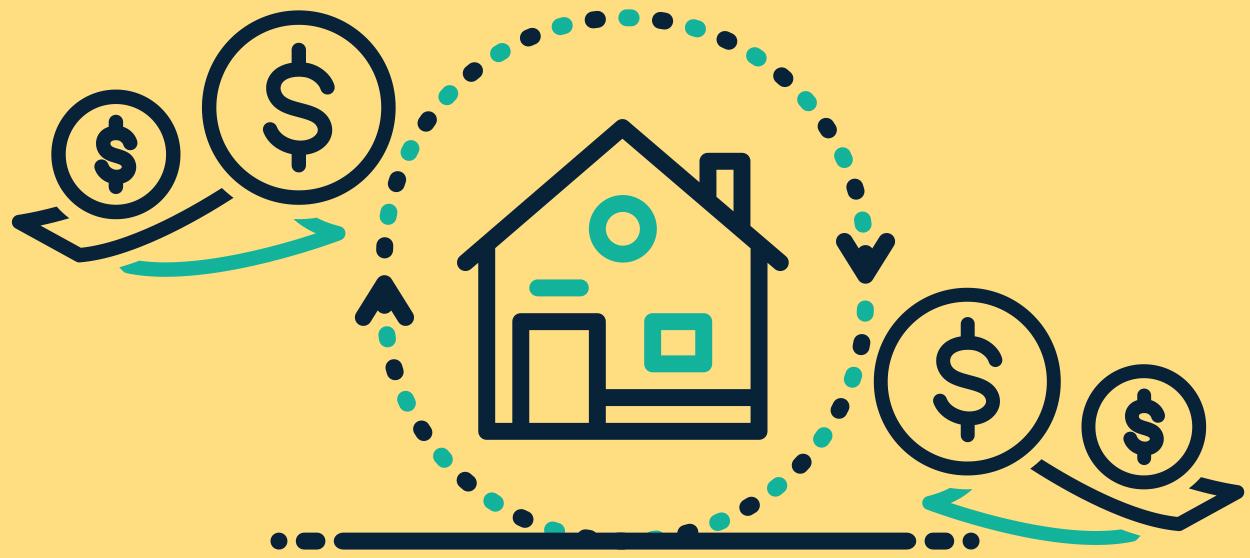5 important things to know about reverse mortgages
These loans, which are specifically for seniors, have many pros and cons


A free daily email with the biggest news stories of the day – and the best features from TheWeek.com
You are now subscribed
Your newsletter sign-up was successful
Reverse mortgages, loans for people age 62 and older, allow seniors to convert home equity into cash. The money you receive can be used for any reason, such as paying off debt, medical bills, home improvements, or a vacation. While these loans are a good choice for some people, they aren't for everyone, and you should know what you are getting into before signing on the dotted line. If you're considering a reverse mortgage, here are a few things to know:
Reverse mortgages are loans. This may seem obvious, but it's the most important thing to remember about a reverse mortgage. Even though you may not need to make monthly payments, the loan amount continues to grow as the interest and other charges are added to the principal amount. The longer you live without paying back the loan, the more your principal grows. Depending on the original amount, your principal can grow by tens of thousands of dollars over the life of the loan. If you don't understand how a reverse mortgage works or use them to bail yourself out of a financial bind, it can backfire, causing financial hardship, according to the Financial Industry Regulatory Authority.
You are responsible for loan fees. At the loan closing, you are responsible for fees, which include mortgage insurance premiums, loan origination fees, and closing costs. While some of these can be incorporated into your loan, doing so either reduces the cash available to you or increases the principal amount. The initial mortgage insurance premium is 2 percent and over the life of your loan, you will be charged an additional 0.5 percent of the outstanding principal each year according to Housing and Urban Development (HUD). In addition to these fees, you are charged interest and servicing fees during the life of the loan.
The Week
Escape your echo chamber. Get the facts behind the news, plus analysis from multiple perspectives.

Sign up for The Week's Free Newsletters
From our morning news briefing to a weekly Good News Newsletter, get the best of The Week delivered directly to your inbox.
From our morning news briefing to a weekly Good News Newsletter, get the best of The Week delivered directly to your inbox.
There is an application process. The first thing the lending bank looks at is how much equity you have in your house. Only those with considerable equity are eligible for a reverse mortgage. Even if you own your house outright, the bank granting the loan looks at your financial resources to make sure you can continue paying property taxes, homeowner's insurance, homeowner association fees if you have them, and maintaining your property. Unlike traditional mortgages, taxes and homeowner's insurance are not placed in escrow and paid by the bank. In addition, the bank checks credit reports for payment history and household debt.
There are personal and property requirements. The U.S. government only insures certain types of reverse mortgages, called Home Equity Conversion Mortgages (HECM), which are available only through FHA-approved lenders, according to HUD. The borrower must be at least 62 years old and the property must be their primary residence. The property must be a single-family home or a property with two to four units if at least one unit is occupied by the borrower. The home must meet all FHA property standards and flood requirements. If it is a condominium, it must be a HUD-approved condominium project.
Reverse mortgages are available with fixed or adjustable interest rates. If you choose a fixed interest rate, you receive a single, lump-sum payment. If you choose an adjustable rate, you have a choice on the terms of your mortgagem, according to HUD. The choices include:
- Tenure — receiving equal monthly payments during the term of the loan for as long as at least one borrower is alive and continues to live in the property.
- Term — receiving equal monthly payments for a specific amount of time.
- Line of Credit — Requesting a payment based on your situation until the approved amount of the loan has been used
You can also choose a modified program. For example, you can request a modified term, which would provide you with equal monthly payments but also allow you to withdraw money at other times, using the balance as a line of credit.
A free daily email with the biggest news stories of the day – and the best features from TheWeek.com
The National Council on Aging (NCOA) suggests weighing the pros and cons before jumping into a reverse mortgage. For government insured loans, you are required to receive counseling from a HUD-approved counseling agency, at your expense, to help you understand about reverse mortgages. Depending on where you live, counselors are available for in-person or telephone sessions. The counselor talks about how the loan works, what the benefits are, and will also discuss other options, such as public and private resources that may be available to you as an alternative to a reverse mortgage. You should also keep in mind that:
- Your home can be foreclosed if you do not keep up with taxes, homeowner's insurance, or property maintenance
- The principal of the loan continues to increase because interest and other fees add to the principal
- You may use all the equity in your home and not have it available if you need it later
- You may not be able to get out of the loan without selling your house
A reverse mortgage is a good option for some people, but it is not a guarantee that you will remain in your home for the rest of your life or that you will no longer need to worry about finances. Most people, according to NCOA, use this money to pay basic living expenses, as supplemental income, or to pay off debt.
Eileen Bailey is an award-winning author of six books and a freelance writer. She is a regular contributor to ADDitude Magazine and HealthCentral.com.
-
 Political cartoons for February 19
Political cartoons for February 19Cartoons Thursday’s political cartoons include a suspicious package, a piece of the cake, and more
-
 The Gallivant: style and charm steps from Camber Sands
The Gallivant: style and charm steps from Camber SandsThe Week Recommends Nestled behind the dunes, this luxury hotel is a great place to hunker down and get cosy
-
 The President’s Cake: ‘sweet tragedy’ about a little girl on a baking mission in Iraq
The President’s Cake: ‘sweet tragedy’ about a little girl on a baking mission in IraqThe Week Recommends Charming debut from Hasan Hadi is filled with ‘vivid characters’
